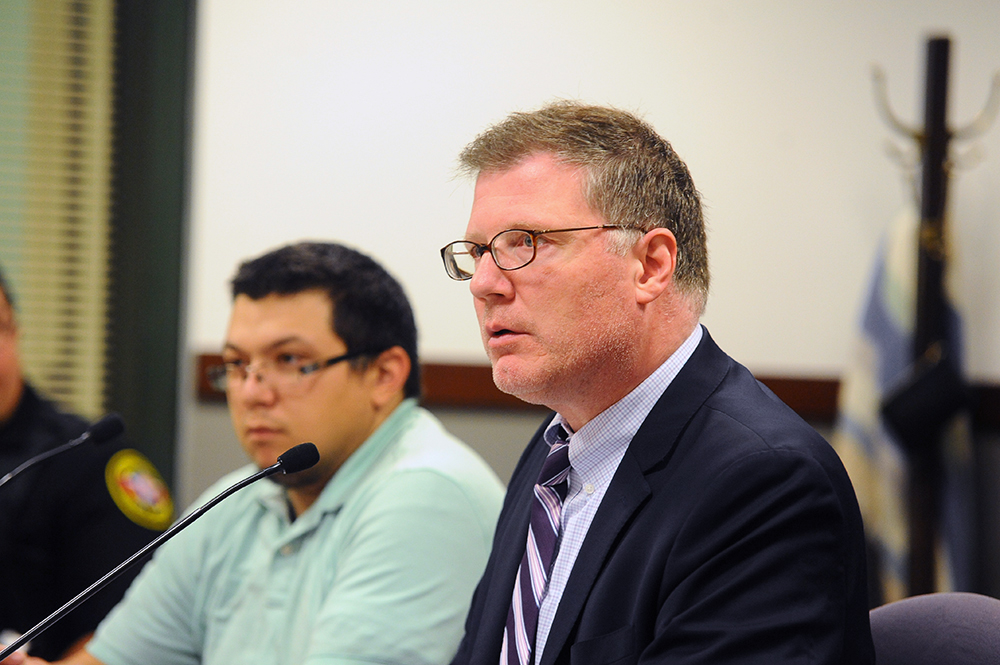
Guest post by criminal defense attorney Michael D. Cicchini

In the Idaho quadruple homicide case, defendant Bryan Kohberger is accused of murdering University of Idaho students Ethan Chapin, Xana Kernodle, Kaylee Goncalves, and Madison Mogen. The defense waived the right to a timely preliminary hearing (14 days in Idaho) and set the hearing in June so it has enough time to go through all of the evidence. The judge cleared five days on the calendar for the hearing itself. This indicates that the defense gets the discovery materials (e.g., police reports, witness statements, etc.) before the prelim and the state has to call actual witnesses at the evidentiary hearing in order to establish probable cause.
By comparison, in Wisconsin, the courts at all levels of the system have managed to super-legislate from the bench; they have somehow turned an evidentiary hearing, which was designed to prevent improvident prosecutions, into a prosecutorial weapon for charging anything and everything without probable cause and, certainly, without the presentation of any evidence.
What do I mean? Well, if pre-hearing discovery and actual witnesses are the hallmark of Idaho’s preliminary hearing, then these are the hallmarks of Wisconsin’s preliminary hearing:
1. No pre-hearing discovery whatsoever. (See pp. 499-504.) The defense is kept in the dark and isn’t even entitled to police reports before the hearing. And at the hearing itself, prosecutors have even dreamed-up a new objection whenever the defense asks a question of a witness that might produce some interesting information. They pipe up, with a sense of urgency in their voice, “Objection, discovery!” As I’ve pointed out to numerous court commissioners, “discovery” is not a proper objection. No matter, the objection is nearly always sustained and the line of questioning is stopped dead in its tracks. Ignorance, apparently, is the goal.
2. Witnesses without any knowledge of the case whatsoever. (See pp. 493-499.) In Wisconsin, prosecutors don’t have to call actual witnesses. Instead, they call a “reader”—a law enforcement agent assigned to the courtroom for the day who had nothing whatsoever to do with the investigation of the case. This reader reads and tries to memorize the criminal complaint—a document drafted by the prosecutor’s office—and then answers questions about it on the witness stand. In other words, the state’s “evidence” at the prelim consists of a cop (with no personal knowledge of the case) saying that a prosecutor (who drafted the complaint) said that an investigating officer said that an informant or other witness said that the defendant said or did something. Probable cause established! Hearing over. Thanks for playing. I kid you not, dear reader.
3. Defense witnesses need not apply! (See pp. 504-506.) In order to prevent the defense from learning anything about the case, courts may also prohibit the defense from calling its own witnesses with personal knowledge of what allegedly happened. And commissioners and judges deny defendants this right despite the clear, plain statute allowing—guess what?—the defense to call witnesses! How can this happen? Again, super-legislation from the bench at all levels of the court system starting with the court commissioner, then the trial court judge, then the appellate court, then the state’s high court. Read the three pages in the above link to learn the logical and legal errors the courts commit when denying defendants their statutory right to present evidence at the hearing.
4. The preliminary hearing is a prosecutorial weapon to add charges. (See pp. 506-511.) In Wisconsin, the preliminary hearing now benefits the prosecutor, not the defense. Although the hearing is meant to provide felony defendants with additional protections compared with defendants charged with mere misdemeanors, prosecutors use the courts’ super-legislation to add charges without any probable cause in the hearing testimony or even the complaint! Once again, this deplorable, pro-state, intellectually hollow tactic not only violates the purpose of the hearing, but also directly contradicts the statute which requires dismissal of all counts for which there was no probable cause! Read the above pages to learn the intricate details. Fair warning: it’s like watching the metaphorical sausage being made.
Although they’re violating law, logic, reason, and commonsense—and effectively eliminating an important part of criminal procedure in the process—you have to give these government agents points for sneaky efficiency. I’m quoting myself here, but, “in today’s assembly-line approach to criminal law, prosecutors and judges have developed many ways to bypass this procedural safeguard [the preliminary hearing] and keep the criminal justice machinery humming along.” It’s a volume business!
[This post has been cross-posted on The Legal Watchdog blog.]



























6 Responses
What a great piece. Thank you for the KCE for bring it to us. However, much of it will be lost on the majority of visitors to this site who blindly “back the badge.” People should understand that when you do not protect the rights of criminal defendants, you have the same system as North Korea. Anyone can find themselves in the sites of corrupt law enforcement. No one can say with certainty that it would never happen to them.
Great comparison, the Idaho Hoak was clearly FBI orchastrated.
….so removing the disingenuous DA Mike Gravely is only a minor part in restoring Law and Order in Kenosha County.
Whatever, different stage, different play.
Interesting article by Mr. Cicchini. A lot of what and, frankly, some chaff, too, as his recitation of Wisconsin law is not only skewed but occasionally inaccurate. Quibbling about what he got wrong would be counterproductive because what he got right is even more significant than what Mr. Cicchini wrote. So I’ll pick just one nit.
The preliminary hearing is not a mini-trial or preliminary trial in Wisconsin. It is a screening device and thus the among of evidence necessary to give the green light for a prosecution to proceed is much less than needed for a conviction. With that out of the way the problem (well, one of the problems) in Kenosha County is that the district attorney’s office has chosen to reduce preliminary hearings to an almost meaningless waste of time and money that frustrates justice worse that what Mr. Cicchini laments.
Remember that I said that preliminary hearings aren’t supposed to be mini-trials? Despite what the law reads (and the changes over the years) to be an effective screening device they are kinda, sorta mini-trials. Why? Because that’s how to separate the marginal cases from those with much more merit. How so? The answer begins with understanding how charges come about.
When police investigate a crime they can either make an arrest and refer the case to the district attorney for prosecution or sometimes they will just refer the case without keeping the suspect in custody. Either way in most situations the district attorney is making a charging decision based on police reports and witness statements with no meaningful chance (if any) to independently evaluate the quality of the case.
As a practical matter preliminary hearings were an opportunity for both the prosecutor and defense attorney to “kick the tires” of the case. If the witnesses, especially the victim, were subpoenaed for the preliminary hearing the prosecutor would discuss the case with them and could determine if what was in the reports and witness statements squared with what would be their testimony. Often victims know defendants and had insights about the case and the people involved that isn’t in the police reports. Sometimes this process showed the holes in the case and sometimes the case was actually better than it may have initially seemed.
Truth is most preliminary hearings wound up being waived by defendants but the presence of the key witnesses in the case at the preliminary hearing was helpful. Occasionally defense attorneys would have their own conversations with the witnesses and could size up the case and then recommend that their clients waive the hearing. Other times even though cross-examination was limited having the witnesses on the stand gave both attorneys a view of the evidence and how the witnesses would hold up at a trial. Many times after a preliminary hearing defense attorneys would come to the conclusion that the prosecution had a good case and attempt to settle it short of trial. Similarly prosecutors would see where a case was weak. A lot of cases were settled this way and scarce resources (and money) saved for the defendants and cases requiring a trial.
Then the legislature expanded the law to broaden the acceptable use of hearsay testimony at a preliminary hearing. The truth is that some witnesses who were called to testify at a preliminary hearing added nothing meaningful. Let’s say the case was a felony level criminal damage to property case where the amount of damage is relevant to the charge and that American Family Insurance paid out $25,000 to fix the damage. Was it really necessary for someone from American Family to drive from Madison to Kenosha just to say that they paid out $25,000 to fix the damage when all that witness knows is that the company cut a check for $25,000 on that claim? 99% of the time the answer would be a solid “no” and hearsay would be an utterly acceptable conservation of time and cost at a preliminary hearing.
The Kenosha County District Attorney’s office took this too far. Now most preliminary hearings don’t have witnesses subpoenaed to the courtroom but rather a police officer reads the criminal complaint. Almost always the officer has zero personal knowledge of the case and both the prosecutor and defense attorney have no chance to meet and hear from the people who do. The district attorney’s office doesn’t have the face-to-face ability to size up the witnesses and cases wind up on the trial calendar without that early vetting. Defense attorneys have a tougher time determining whether to go to trial or to settle a case that maybe if they heard some first hand testimony they’d be convinced their client had little chance of acquittal. Now that’s gone and trial calendars get clogged with cases that should have been resolved long ago. And prosecutors waste time and money dealing with them, too, instead of focusing on the ones that need more attention.
There’s an old Army saying: “More sweat in training, less blood in combat.” The Kenosha County District Attorney’s office expends more blood in combat because of the lack of sweat in training. Experienced lawyers will tell you that many cases were settled because of the preliminary hearings after they heard from the witnesses (and sometimes defendants who may have been drunk or high at the time needed to hear what they did because they couldn’t remember).
The district attorney’s notion is that by reducing preliminary hearings to the status of meaningless bobble-heads taxpayer money is being saved by not bringing in police officers and witnesses for preliminary hearings that are often waived. That’s foolish economy because even if the hearing is waived the prosecutor still has a chance to meet the people involved and size up the case plus it offers victims and witnesses a chance to give the prosecutor valuable insights. Yes, there are times when it’s a “slam dunk” case and the preliminary hearing would be a waste of time and, yes, it makes no sense to have someone from American Family drive here from Madison to just to say that they paid out $25,000 on a claim. But too much garbage stays in the system longer because of the lack of proper vetting that preliminary hearings used to offer. In that sense Mr. Cicchini is spot on. And he’s also correct that just because hearsay can be used at a preliminary hearing it doesn’t always mean that it’s proper evidence to be considered by the court.
In order for hearsay to be admissible it should be “reliable.” And while the standard of proof at a preliminary hearing is probable cause the law also says that this level of probable cause may be higher than at the criminal complaint stage. For example, if the officer testifying says that “a witness told one of our officers that the defendant threw a brick at the window” that’s not reliable hearsay. Who said so? Why should they be believed?
Now, imagine if the testifying officer said, “Sally Smith, who lives at 1234 Highway K, told Officer Dick Tracy that on November 2, 2022 at about 11:30 p.m., she brought her garbage can to the curb and looked across the street and saw the defendant throw a brick at the window of his ex-wife’s house and that she knew who he was because he used to live across the street before he got divorced and she met him several times.” Would that be more reliable as Sally Smith lives across the street, was standing outside when she saw the defendant throw a brick and knew who he was as a former neighbor that she’d met?
At least one magistrate has occasionally tossed charges out because the hearsay was lacking reliability. Mr. Cicchini makes a very good point and perhaps more defense attorneys need to be prepared to properly argue when hearsay isn’t reliable and thus inadmissible. And the district attorney’s office may be squandering both resources and justice. They may think they’re saving money but experience teaches that it’s often the cheapskate that spends the most.
A lot of wheat, not what. Typo.